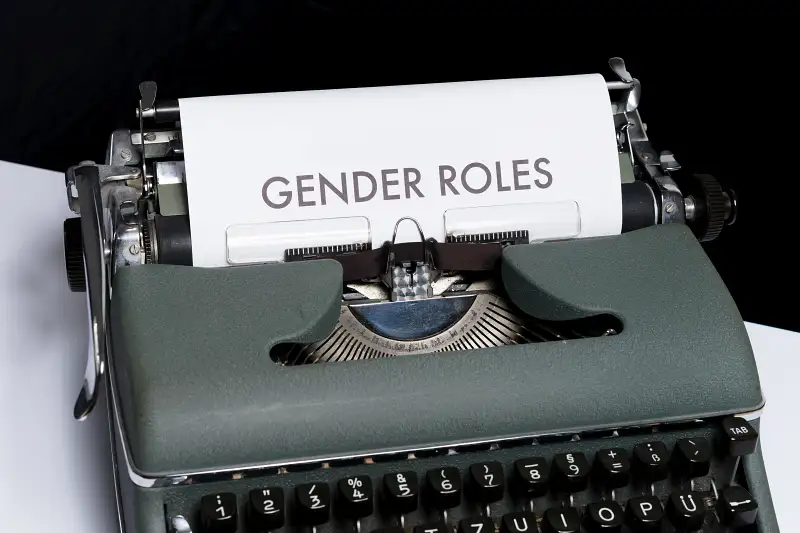Table of Contents
- The Sociological Definition of Gender
- The Social Construction of Gender
- Theoretical Perspectives on Gender Equality
- Historical Development of Gender Equality
- Contemporary Issues in Gender Equality
- Achieving Gender Equality: Strategies and Solutions
- Conclusion
Gender equality has been one of the most contentious and transformative issues in the field of sociology. From the recognition of gender as a social construct to the analysis of gender-based inequalities in power and privilege, the study of gender equality requires a thorough understanding of social roles, institutional norms, and historical developments. In this article, we will delve into the sociological understanding of gender equality, exploring key theoretical perspectives, the historical evolution of gender equality, and contemporary issues that persist today.
The Sociological Definition of Gender
Distinguishing Between Sex and Gender
In sociology, it is critical to distinguish between sex and gender:
- Sex refers to the biological differences between males and females. This is typically identified by physical attributes such as reproductive organs, chromosomes (XX for females, XY for males), and secondary sexual characteristics.
- Gender, on the other hand, is a social construct. It refers to the roles, behaviors, and expectations that society assigns to individuals based on their sex. Unlike sex, which is biologically determined, gender is created and maintained through social interaction, culture, and institutional reinforcement.
The recognition of gender as a socially constructed phenomenon allows sociologists to explore how gender roles vary across cultures, historical periods, and social contexts. This also opens up discussions about how gender norms can be challenged or altered, rather than being seen as fixed or “natural.”
Gender as a Spectrum
Modern sociological perspectives reject the simplistic binary classification of gender (male/female). Instead, gender is viewed as a spectrum, where individuals may identify themselves at various points along the continuum or outside of the binary framework altogether (such as non-binary or genderqueer identities). This understanding challenges traditional categories and highlights the need for a more inclusive approach to gender identity and equality.
Key points:
- Gender is not a fixed category but is socially constructed.
- Cultural and institutional norms play a significant role in shaping how individuals experience and express gender.
- Contemporary discussions of gender equality must account for diverse gender identities beyond the male/female binary.
The Social Construction of Gender
The idea that gender is socially constructed is central to sociological thinking. This perspective emphasizes that gender roles are learned and reinforced through socialization processes from birth. Social institutions such as family, education, religion, and media contribute to the creation and perpetuation of these roles.
- Family: Children often learn their earliest gender roles within the family setting. Boys may be encouraged to engage in activities perceived as “masculine,” while girls may be steered towards “feminine” activities. These roles are then reinforced through parental expectations, toys, clothing, and chores.
- Education: Schools play a pivotal role in shaping gender norms. Teachers may unintentionally treat boys and girls differently, reinforcing traditional gender roles. For example, boys may be encouraged to excel in math and science, while girls are guided towards more nurturing or artistic fields.
- Media: Media representations also serve to normalize specific gender behaviors and expectations. Advertisements, films, and TV shows often portray men in dominant, assertive roles and women in passive, caregiving roles.
This process of socialization leads individuals to internalize gender norms and reproduce them in their everyday interactions. As a result, gender roles become deeply embedded in the social fabric, making them appear “natural” even though they are socially constructed.
Key points:
- Gender roles are not innate but are learned through socialization.
- Family, education, and media are key institutions that reinforce gender norms.
- Sociologists study how these roles can change over time and in different social contexts.
Theoretical Perspectives on Gender Equality
Several theoretical frameworks have been developed to explain gender inequality and the role of gender in society. Each offers a unique lens through which to understand the persistence of gender inequality and the potential paths toward achieving gender equality.
Functionalist Perspective
The functionalist perspective sees society as a complex system of interrelated parts, each serving a specific function to maintain social order and stability. From this viewpoint, traditional gender roles have historically served the purpose of ensuring the smooth functioning of society.
- Instrumental roles: Functionalists argue that men have traditionally taken on instrumental roles, such as being the breadwinner or protector of the family. These roles are considered essential for economic stability and social security.
- Expressive roles: Women, on the other hand, have been assigned expressive roles, focusing on caregiving, emotional support, and child-rearing. These roles are seen as important for maintaining the family unit and ensuring the socialization of children.
Critics of the functionalist perspective point out that this approach reinforces traditional power imbalances and ignores the ways in which gender roles restrict individual autonomy. By focusing on the “function” of gender roles, functionalism tends to overlook the inequalities and conflicts that arise from these roles.
Key points:
- Functionalism emphasizes the role of traditional gender roles in maintaining social stability.
- It assigns men instrumental roles and women expressive roles, viewing both as complementary and necessary.
- Critics argue that this perspective overlooks the oppressive nature of these roles.
Conflict Theory
Conflict theory, inspired by the work of Karl Marx, views gender inequality as a product of power struggles between different social groups. This perspective argues that gender roles serve to perpetuate the dominance of men over women, both within the family and in broader society.
- Patriarchy: Conflict theorists argue that patriarchy, or the system of male dominance, is a key source of gender inequality. Patriarchy operates at both the micro-level (e.g., within families) and the macro-level (e.g., in political, economic, and cultural institutions).
- Economic exploitation: Gender inequality is also linked to capitalist structures, where women’s labor (both paid and unpaid) is exploited for the benefit of male-dominated economic systems. Conflict theorists point to the gender pay gap, occupational segregation, and the undervaluation of caregiving and domestic work as evidence of this exploitation.
This perspective calls for structural change to dismantle patriarchy and achieve gender equality. It also emphasizes the need for collective action and social movements to challenge existing power structures.
Key points:
- Conflict theory sees gender inequality as a product of power struggles between men and women.
- Patriarchy is viewed as a key source of male dominance and female oppression.
- Economic exploitation of women’s labor is central to maintaining gender inequality.
Feminist Theory
Get the full article AD FREE. Join now for full access to all premium articles.
View Plans & Subscribe Already a member? Log in.





